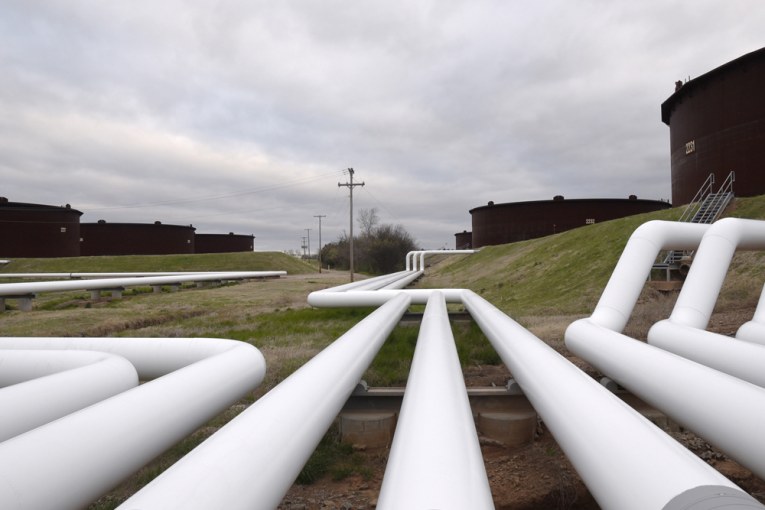
CALGARY — In the latest round of a protracted regulatory fight, the Canada Energy Regulator said it’s proceeding with Enbridge Inc.’s request for a hearing that could dramatically change the way the country’s largest oil pipeline network operates.
The CER issued its decision Tuesday to allow a hearing into the pipeline giant’s plan to sign long-term contracts for the Mainline pipeline network, which is the largest Canadian oil export system and moves 2.9 million barrels of oil per day out of Western Canada.
The CER’s decision is a blow to Suncor, Canadian Natural and 14 other parties that had requested the CER to postpone the hearing process until the end of the coronavirus pandemic, which has gutted oil markets.
Right now, the Mainline functions as the spot market for Western Canadian oil and most domestic producers want to keep it that way.
Given the magnitude of the change Enbridge is seeking, Canadian oil producers had also requested a two-stage hearing — the first phase would consider whether the change should be allowed at all, and the second would focus on costs and tolling.
Most of the Calgary oilpatch supported those two requests but the CER dismissed them, noting that the “postponement would cause an unjustified delay” and “the commission is not persuaded that a two-phase process is likely to achieve greater efficiency.”
A number of domestic oil producers say that if Enbridge succeeds, it would force them to sign new contracts at a time when the industry does not have many options to ship the commodity.
The line has been running fairly effectively for 70 years and so I don’t know why there needs to be this change
Tristan Goodman
“We had requested something different but, either way, it’s the substance of the issue that we’re interested in in the end,” Explorers and Producers Association of Canada president Tristan Goodman said Wednesday, adding “the vast majority of producers oppose this change” and would continue to fight Enbridge’s plan.
“We also think the line has been running fairly effectively for 70 years and so I don’t know why there needs to be this change,” Goodman said.
The decision, however, is not a complete victory for Enbridge, which will still need to successfully argue that the Mainline system, which is currently 100 per cent available for short-term shipping commitments, should be converted to a system that is 90-per-cent tied up with long-term contracts.
Enbridge will also need to disclose some of its costs to operate the pipeline to the regulator and to its customers as part of the hearing.
“The offering has strong support from a wide cross-section of producers and refiners representing greater than 70 per cent of the Mainline’s current throughput,” Enbridge executive vice-president and president of liquids pipelines Vern Yu said in a release.
Financial Post
• Email: [email protected] | Twitter: geoffreymorgan
You can read more of the news on source
